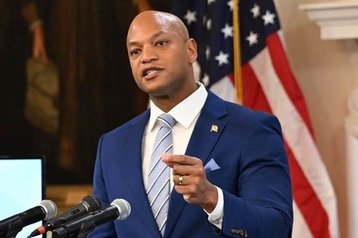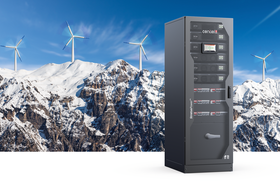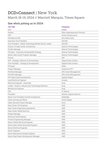Maryland’s governor has signed a bill that reduces regulatory restrictions around backup generators in the state.
Governor Wes Moore this week signed SB0474 – also known as the Critical Infrastructure Streamlining Act of 2024 – into law.
Proposed in January, the bill alters the definition of a "generating station," with the aim of exempting generating facilities used to produce electricity for the purpose of on-site emergency backup from certain permitting requirements.
The bill removes the need for data centers to obtain a certificate of public convenience and necessity and other related approvals under certain circumstances.
The bill also altered the distribution of income tax revenue from corporations that is attributable to certain data centers.
Under the previous state law, backup generators below 2MW were generally allowed, while any installation bigger than 2MW was classified as a "generating station" and had to be granted a Certificate of Public Convenience and Necessity (CPCN), a process that requires a lengthy public consultation.
Moore said the bill “removes barriers to Maryland’s technology infrastructure growth” by streamlining the regulatory processes for industries that rely on backup power generators in the event of power outages.
“The act simplifies the regulatory process and ensures Maryland is an ideal location for businesses in the growing Mid-Atlantic technology industry,” an announcement from the governor’s office said.
Maryland isn’t currently a major data center market, but the Quantum Loophole campus in Frederick County is seeking to create a massive data center park that could reach up to 2GW.
Quantum Loophole's first tenant, Aligned Data Centers, wanted 168 diesel generators capable of delivering 504MW for its full build on the site. Aligned wanted its generators to be treated individually, and to get an exemption from the CPCN process, but the state's Public Services Commission (PSC) rejected the request.
The company then pulled out after a hearing in which the PSC only granted it a provisional exemption for up to 70MW of diesel generators.
A second data center builder, Rowan Green Data, announced plans to develop another part of the campus but was potentially facing the same problem, as it also planned to use diesel generator backup.
Back in October, Moore promised that the state legislature would address the data center industry’s needs and "ensure the industry has a bright future in Maryland.”
"Barriers to emergency backup generators for data centers are now removed and Maryland along with Quantum Loophole are ready for deployments!" Quantum Loophole Josh Snowhorn said this week on LinkedIn. "Thank you to the partners, lobbyists, House and Senate leaders, and most importantly Gov. Wes Moore for his foresight and support of our industry and the people of Maryland."







